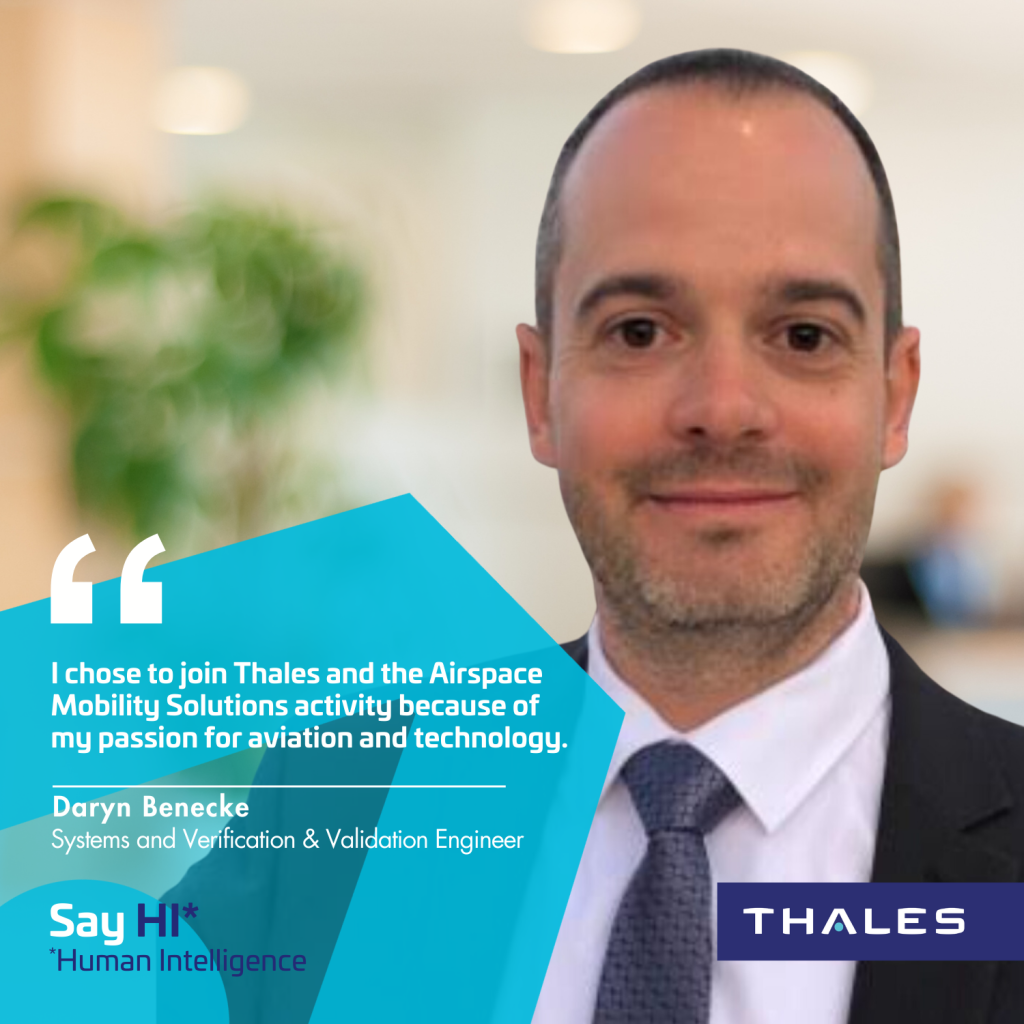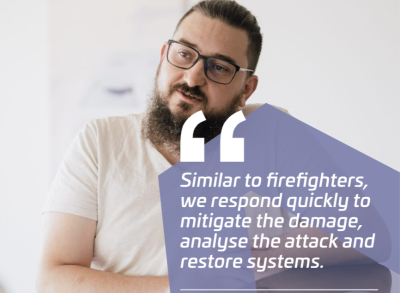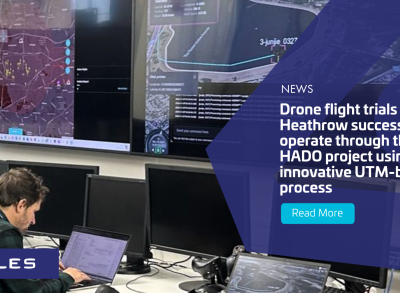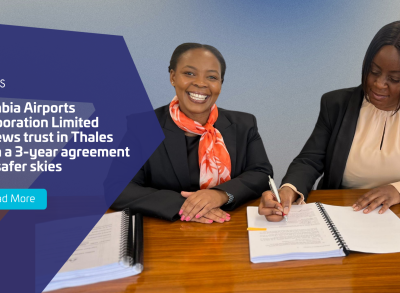5 minutes with... Daryn Benecke, Systems and Verification & Validation Engineer

Can you tell us a bit about yourself?
I started my aviation career as an airline pilot for Cathay Pacific Airways. My journey began on the Boeing 747-400 as a second officer, and I later transitioned to the Airbus A330-300, where I served as a first officer. Over time, I also became cross-qualified on the Airbus A340-300 and A340-600. After a fulfilling 10 years of flying, I returned to university to pursue a bachelor's degree in Mechatronics and Robotics, driven by my passion for understanding diverse technologies. Mechatronics and robotics allowed me to delve into software engineering, electronic engineering, mechanical engineering, and automation, equipping me with a broad skill set. My curiosity and love for learning how things work have always been at the core of my pursuits.
Do you find any similarities between your position as a pilot and here at Thales?
There are significant differences between my current engineering role and my previous flying role, as they require different skill sets. However, the common ground lies in domain knowledge. My aviation background gives me a strong foundation in navigation, communication, avionics, and operational knowledge, which is invaluable at Thales. For example, my understanding of crew resource management (CRM) has helped me effectively communicate and collaborate with my team, both on the flight deck and in the office.
Can you tell us what your job is about?
I am currently employed as a Validation and Verification (VnV) engineer. One responsibility of my role involves testing new software releases by conducting system-wide tests to verify that the software behaves as expected and meets its requirements before site delivery. In this VnV role, I also support the software development process by writing and running test books to verify the functionality of new features against the requirements. Additionally, I support the Systems Engineering Managers by providing initial review and analysis of reported issues by our customers.
To perform these tasks, I regularly engage with various team members, such as our ATMs Operation Specialists, who are all ex-air traffic controllers and serve as our subject matter experts in air traffic management. We also work closely with technical team members, including integration specialists responsible for platform configuration and software engineers who create or correct the software providing services to air traffic controllers.
Since I was a Systems Engineer in Melbourne before moving to Singapore, I also help augment the Systems Engineering team during high workloads. In that capacity, I work on Singapore's air traffic control system, and contribute to design changes. This requires heavy collaboration with other team members, such as the Product Architect and other Systems Engineers working on the project.
A smaller portion of my time is spent providing training to the Airspace Mobility Solutions activity in Singapore and Australia. This includes a series of training sessions covering airline operations in the context of air traffic management. I find teaching others about aviation and technology to be very rewarding.
Tell us about your daily work life?
A typical day consists of one of two primary responsibilities. The first is system-wide testing in preparation for a software release. On these days, we follow a test book to ensure the release is thoroughly tested in the factory before being sent to the site. This process can take a few weeks to cover all aspects of the system. The second type of day focuses on Proposed Change Request (PCR) testing or evaluation. For example, if a customer reports unexpected behaviour, I analyse the issue by gathering relevant artefacts such as video recordings and software logs. Once the analysis is complete, I determine whether the behaviour is correct or aberrant and provide feedback to the Systems Engineering Manager. For PCRs that require corrections by the software team, I evaluate the changes and design tests to verify the corrections.
My background in aviation helps me effectively communicate complex technical issues and collaborate with other engineers and managers to resolve them. I frequently draw on my flying experiences and training when conducting testing. My robust understanding of airline operations and typical controller behaviours is particularly useful when testing various alerts displayed to the controller. I understand what each alert is designed to achieve, why it is needed, and its avionics counterpart, providing me with a comprehensive view of the protections available to both the controller and the pilot.
Additionally, I rely on my flight deck experience when designing test strategies. My operational knowledge allows me to understand where the aircraft should be in four-dimensional space, enabling me to generate realistic tests and anticipate system behaviours over time. For example, in navigation, I have a theoretical understanding of SIDs (Standard Instrument Departure), airways, STARs (Standard Terminal Arrival Route), and approaches from my flight training. I also have operational experience in programming the flight management computer to navigate them and experience from flying them. Furthermore, I have an ATC understanding of them in terms of our HMI depiction, the flight plan-related messages the system receives, and the timing and criteria for allocating the relevant SID or STAR.
Why did you choose to join Thales and the Airspace Mobility Solutions activity?
I chose to join Thales' Airspace Mobility Solutions activity because of my passion for aviation and technology. Meeting the Thales team at a job fair during my final year of university was a turning point. I was impressed by the innovative work being done in Melbourne's ATM space and saw an opportunity to leverage my aviation background while growing as an engineer. Thales offered a perfect blend of challenging projects and a supportive environment that aligned with my long-term career goals. I knew this was the place where I could make a significant impact while continuing to learn and grow.
Do you have any advice for people interested in joining Thales? And if you had to convince engineers to join us, what would you tell them?
I would tell them that aviation is a diverse industry, and the work we do in Airspace Mobility Solutions (AMS) activity reflects that diversity. In my brief time here, I've worked on everything from small data set changes to contributing to the design of complex systems and subsystems. Whether your interest lies in systems engineering, software development, validation and verification, networking, or infrastructure deployment, Thales covers all these areas and more. The variety and technical challenges we face keep the work engaging and rewarding. If you enjoy solving complex problems and want to make a meaningful impact in aviation, Thales is the right fit for you.




